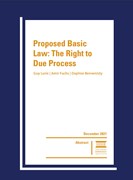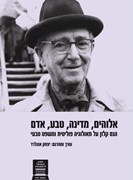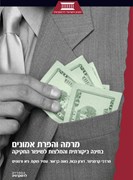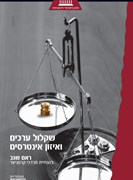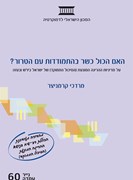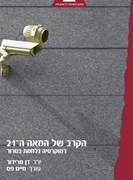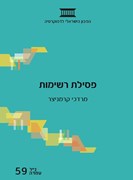

Publications Regarding judicial issues
Articles

A Review of the Moves Designed to Weaken Israeli Democracy: Working Document
Written By: Adv. Anat Thon Ashkenazy, Adv. Daphne Benvenisty
Knesset Summer Session: April 2025 to July 24, 2025

The Polish Precedent for Preventing the Attorney General from Entering Her Office
Written By: Adv. Daphne Benvenisty
The Israeli Minister of Justice ordered the locks changed at the Tel Aviv office shared by the Attorney General, an action that blatantly violates the Supreme Court’s interim order prohibiting the dismissal of the Attorney General and any changes to the working arrangements between the government and the Attorney General.

Exploiting the Public's Distraction to Pursue the Judicial Overhaul
Written By: Dr. Guy Lurie
Amidst the return to fighting in Gaza, the Minister of Justice is taking advantage of the public's eye being off the ball to hastily overhaul Israel's judicial system.

Israel’s Renewed Judicial Overhaul
Written By: Prof. Yuval Shany, Prof. Amichai Cohen
The battle over Israel’s legal system has resumed, threatening judicial independence.

The Dangerous Politicization of Judicial Appointments
Written By: Dr. Amir Fuchs
Changes in the composition of the Judicial Selection Committee threaten the independence of the judicial system. The current proposals would lead to a complete politicization of appointments to all courts and should be blocked.

Bill Proposal: Ombudsman of the Israeli Judiciary (Amendment – Appointment of the Ombudsman), 2024
Written By: Dr. Guy Lurie, Dr. Amir Fuchs
The proposed bill, which would change the selection process of the Ombudsman - responsible for investigating complaints about the conduct of judges and religious court judges - aims to intimidate judges and undermine their independence.

What is the Significance of the Justice Minister’s Declaration that he Will Not Cooperate with the President of the Supreme Court?
Written By: Dr. Guy Lurie
The lack of cooperation between the Minister of Justice and the President of the Supreme Court has numerous consequences that will, among other things, harm the services provided by the judiciary to the citizens of Israel.

Ministers Levin and Saar's Proposed Changes to the Judicial Selection Committee
Written By: Dr. Guy Lurie
Justice Minister Yariv Levin and Foreign Minister Gideon Sa’ar presented their proposed changes to the composition of the Judicial Selection Committee (JSC) as a compromise aimed at achieving a gradual change in the judicial selection process, but many constitutional experts worry that the plan will have dire consequences resulting in the politicization of Israel’s judicial selection process.

The Two Coalitions Israel Needs Now
Written By: Yohanan Plesner
It is increasingly clear that Israel’s future depends on the forging of two coalitions. One is a multinational alliance determined to turn the Palestinian issue from a driver of conflict into an engine of peace. The other, is an internal Israeli coalition ready to pursue a series of bold social, economic, and political reforms.

Constitutional Crisis – Definitions, Precedents, Implications
Written By: Dr. Amir Fuchs, Adv. Daphne Benvenisty, Dr. Nadav Dagan
Recently, Israel has faced a number of situations that could lead to a constitutional crisis. What is a constitutional crisis and why is it dangerous for the stability of democracy? IDI experts explain.

Explainer: Appointment of the President of the Supreme Court
Written By: Dr. Guy Lurie
How is the Chief Justice in Israel selected, what is the principle of seniority and how does this compare internationally? Dr. Guy Lurie explains the roles and responsibilities of the Chief Justice, an issue that is currently at the heart of a dispute between the Minister of Justice and the Courts.

Understanding the Supreme Court's Ruling: Selection of the Supreme Court President
Written By: Dr. Guy Lurie
The Israeli Supreme Court recently issued a pivotal ruling, instructing the Minister of Justice to convene the Judicial Selection Committee and select a new President of the Supreme Court. This decision come after nearly a year in which this permanent position has remained vacant.
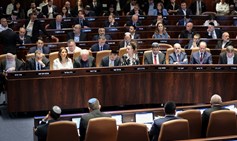
The Judicial Overhaul and Anti-Democratic Initiatives
Written By: Adv. Anat Thon Ashkenazy, Adv. Daphne Benvenisty
Judicial overhaul initiatives, along with other anti-democratic measures, have continued to be promoted by the government and the coalition in the Knesset. This document outlines the various actions taken in government that weaken the Israeli judiciary and democracy at large.
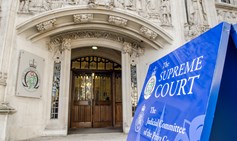
Appointment of Judges to High Courts in Democratic Countries: A Comparative Study
Written By: Prof. Amichai Cohen, Dr. Guy Lurie
The research examined 42 countries included all the OECD member states along with other leading democratic countries.
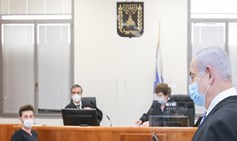
A Prime Minister on Trial: Qs and As
Written By: Dr. Amir Fuchs
The Prime Minister's trial reconvenes with a pandemic raging and the elections camping continuing. What can we expect?
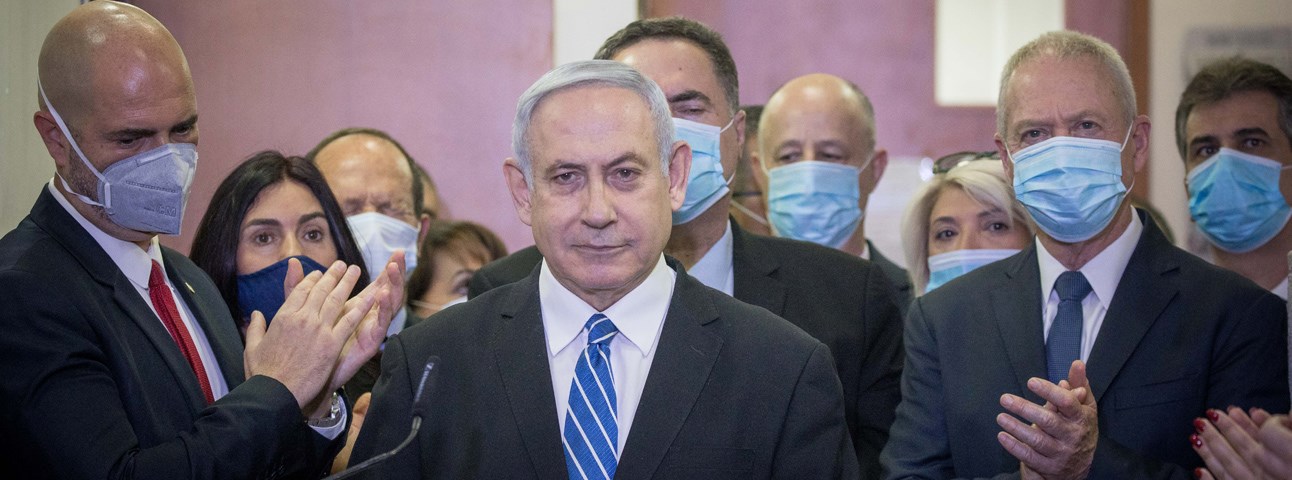
On the Street or in the Courtroom?
Written By: Prof. Yedidia Z. Stern
The Prime Minister’s supporters are trying to entrench a perception among the public that he is facing a political – rather than a criminal – trial.

The Rule of Law Over the Ruler
Written By: Prof. Yedidia Z. Stern
It's one of democracy's substantial achievements: just like every citizen, Netanyahu will stand before 3 judges, whose task is to decide whether he is innocent or guilty

IDI's Legal Experts Hold Online Briefing Ahead of Netanyahu's Trial
Written By: Prof. Yuval Shany, Dr. Amir Fuchs
With Prime Minister Netanyahu's groundbreaking trial is set to commence next week, Professor Yuval Shany, IDI's Vice President of Research, and Dr. Amir Fuchs, the head of the Defending Democratic Values Program, briefed journalists on how the court process will proceed and the long-term legal implications of trying a sitting prime minister.
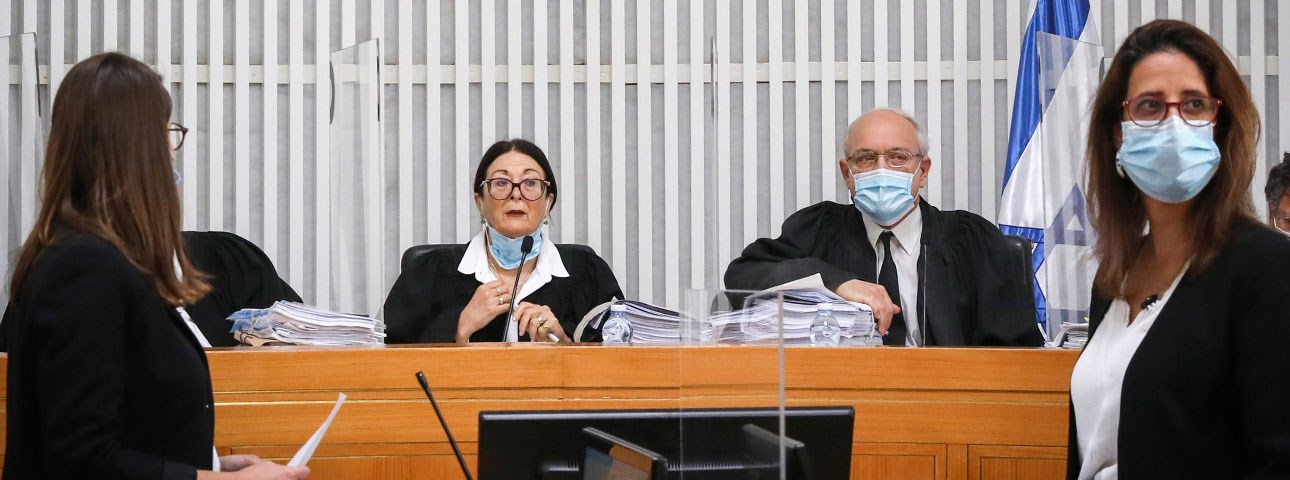
Live Broadcasts from the Supreme Court
Written By: Yair Sheleg
Live broadcasts brings a breath of fresh air and a better understanding of the Supreme Court
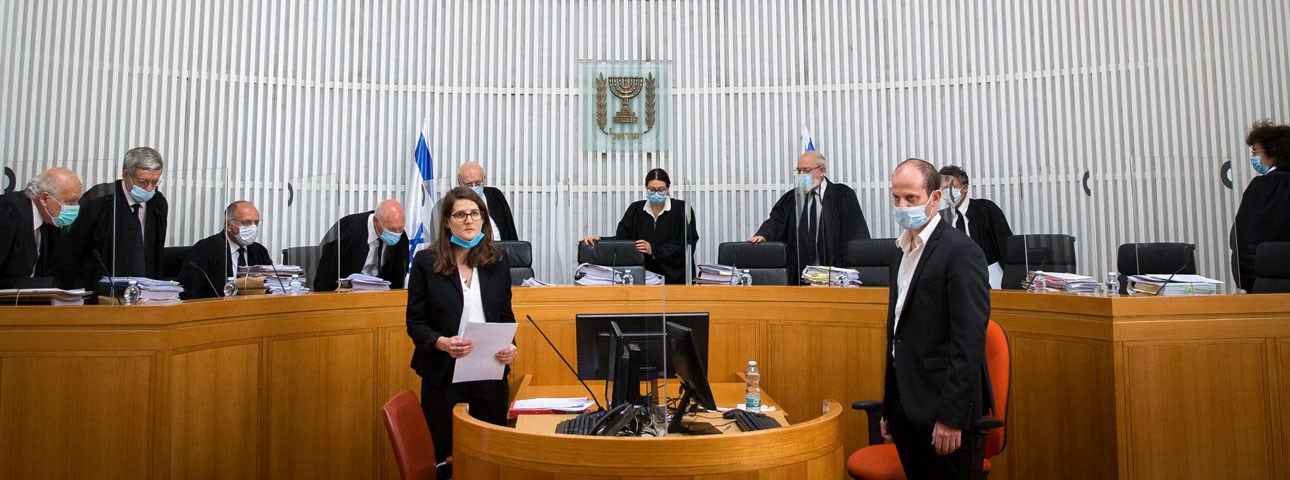
Sanity Prevails: 11 to 0
Written By: Prof. Yedidia Z. Stern
Israel's High Court handed down a unanimous decision - and the public saw for themselves that there was no devious plot to undermine the separation of powers.

Court Systems Worldwide During the Coronavirus
Written By: Dr. Guy Lurie
Israel is not the only country in which the court system has been curtailed, or had its activity modified, as a result of the coronavirus pandemic. Many countries are taking such measures, while at the same time striving to refrain from harming citizen's basic right of available access to courts.
Included are several examples from around the world.

No Female Pilots in IDF? – Get Over it!
New IDI Campaign to Warn Against Attempts to Decimate Supreme Court and Grant Unlimited Power to Politicians
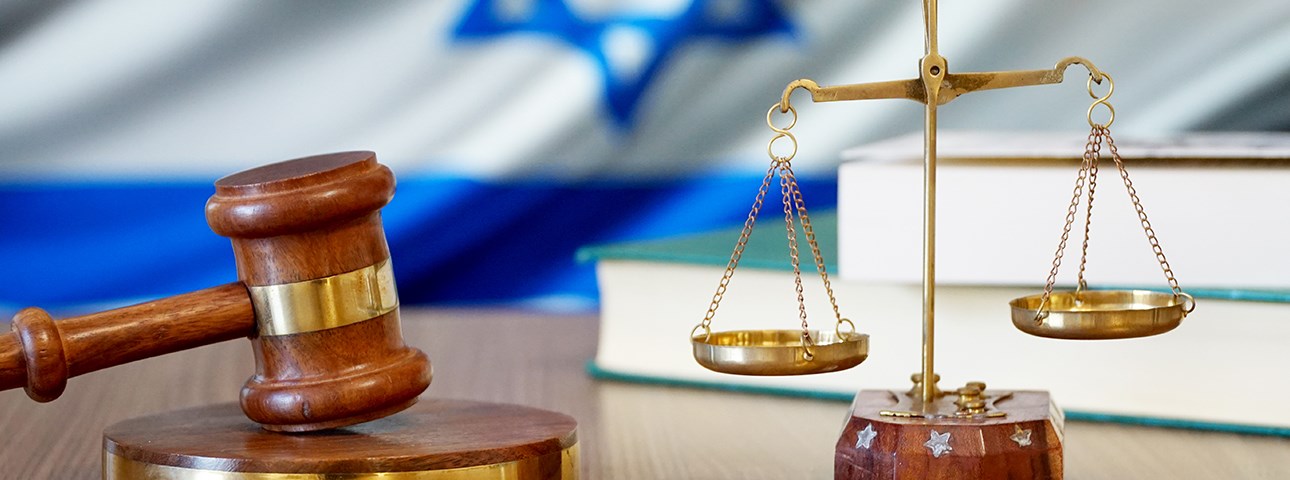
Judicial Review Under Review
Written By: Dr. Amir Fuchs
Israel’s judiciary is under assault, according to some, or experiencing a necessary corrective to rampant judicial activism, according to others. Dr. Amir Fuchs, legal expert and the head of the Defending Democratic Values project at the Israel Democracy Institute, walks through the Knesset’s attempt to change the judiciary and the balance of powers in Israel, what’s behind it, and what it means for the country.
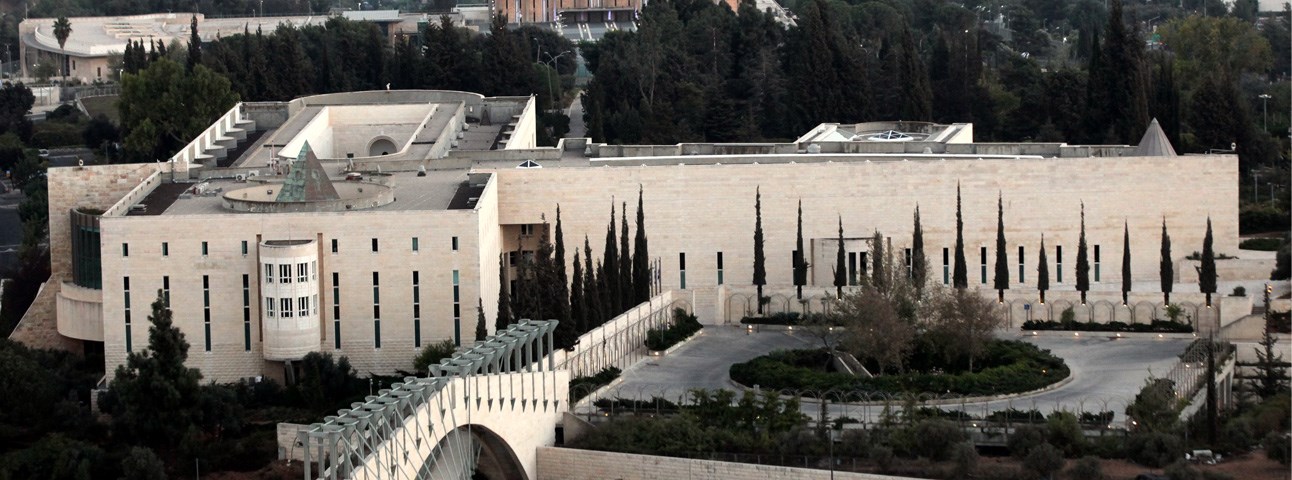
Supreme Court Decision of Combatants for Peace v. Minister of Defense
Written By: Dr. Idit Shafran Gittleman, Tamar Hostovsky Brandes
A controversial decision delivered by the Supreme Court on May 2 could be an important test case for its ability to withstand political attacks, which call to curb the court’s authority and power

The Return of the Override Clause? A Dangerous and Unnecessary Step
Written By: Prof. Yuval Shany
Laws define the legal rules of our democracy and ensure the stability of the political system while guaranteeing individual rights and general public interest - enactment of the Override Clause would seriously undermine this balance.

Strengthening Jewish Peoplehood In The Diaspora — But Not In Israel
Written By: Yohanan Plesner
In the bill’s final wording, the state only commits itself to act within the Diaspora to strengthen the ties of Jewish peoplehood – as if actions taken inside the Jewish state, like the reneged-upon Western Wall compromise, have no bearing on the rest of the Jewish world.

Can an Ex-Senior IDF Lawyer Transform Administrative Detention?
Written By: Colonel (Res.) Dr. Liron A. Libman
"Even a bit more justice than now is better" said Liron Libman in an interview on administrative detention.

Analysis of Israel’s Supreme Court Decision Allowing Lethal Force in Gaza
Written By: Prof. Amichai Cohen
The case of Yesh Din vs. The Chief of the General Staff HCJ 3003/18

Is Israel Justified In Shooting Protestors At Its Border?
Written By: Prof. Yuval Shany
Beyond the important political, humanitarian and moral issues raised by the “Great Return March” and the IDF’s response, complicated legal issues also present themselves.

The Assault on the Rule of Law
Written By: Prof. Yedidia Z. Stern
Powerful forces are pushing against the rule of law, attempting to derail it. From the perspective of those who wish to preserve the rule of law, we are living in a Greek tragedy whose dreadful outcome is foreknown.

Back to the ‘Ticking Bomb’ Doctrine
Written By: Prof. Yuval Shany
The Israeli High Court of Justice’s Dec. 12 decision in Abu Ghosh v. Attorney-General provides a good opportunity to reexamine the implementation of the prohibition against torture in Israeli law almost twenty years after the court’s landmark 1999 judgment in Public Committee Against Torture in Israel, which outlawed torture.

Survey: 56% of Jews Think Most Arab Citizens Support Temple Mount Attack
Monthly Peace Index also finds that 65% of Israelis do not trust Prime Minister Benjamin Netanyahu's handling of the crisis on Temple Mount.

Legal Opinion on the "Zoabi Bill"
Written By: Prof. Mordechai Kremnitzer, Dr. Amir Fuchs
A summary of a legal opinion on a proposed amendment to Basic Law: The Knesset that was submitted by Prof. Mordechai Kremnitzer and Dr. Amir Fuchs to the Ministerial Committee on Legislative Affairs.

The Admissions Committees Ruling: A Lack of Ripeness or Refusal to Decide?
Written By: Dr. Amir Fuchs
Dr. Amir Fuchs discusses the Israeli High Court of Justice's decision to uphold the "Admissions Committees Law," which allows small communities to reject applicants due to a lack of social suitability.

Mourning for Gazan Children Isn't Left-Wing
Written By: Prof. Mordechai Kremnitzer
IDI Vice President Prof. Mordechai Kremnitzer discusses the High Court of Justice's decision to uphold the Israel Broadcasting Authority's rejection of an infomercial in which the names of Gazan children who were killed in Operation Protective Edge would have been read aloud.

The "Anti-Pardon" Bill: Laws are not a Substitute for a Backbone
Written By: Dr. Amir Fuchs
In an article in <em>The Times of Israel</em>, Attorney Amir Fuchs argues that legislation that would give judges the authority to sentence murderers to life in prison with no possibility of pardon is misguided and will not prevent terrorists from being released in future prisoner exchanges.

Is "Israeli" a Nationality?
Written By: Jay Ruderman, Prof. Yedidia Z. Stern
Should the State of Israel recognize "Israeli" as a nationality? IDI Vice President Prof. Yedidia Stern and Jay Ruderman assert that it is imperative for the State of Israel to continue distinguishing between citizenship and nationality.
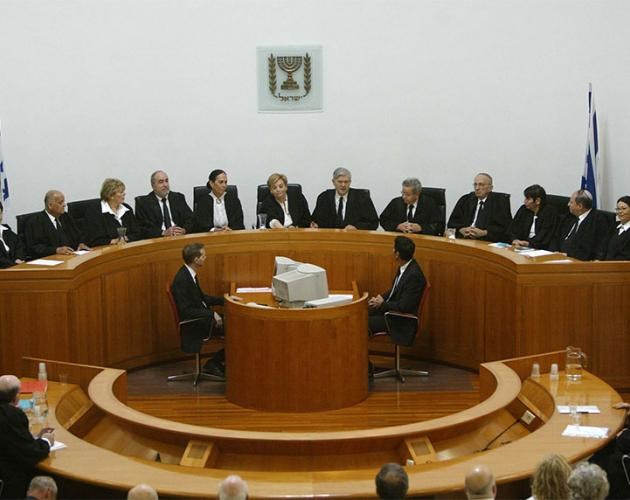
A Truly Supreme Court
Written By: Prof. Mordechai Kremnitzer, Dr. Guy Lurie
In an op-ed in TheMarker, IDI Vice President Prof. Mordechai Kremnitzer and Dr. Guy Lurie discuss the benefits of establishing a new appellate court between the district courts and the Supreme Court.

The Amendment of the Criminal Procedure Law
Written By: Prof. Yuval Shany, Ido Rosenzweig
In an op-ed originally published in Haaretz, IDI Senior Fellow Yuval Shany and IDI Researcher Attorney Ido Rosensweig critique an amendment that would allow interrogations of security defenders to go unrecorded, and warn that it is against public interest.

Justice vs. Law: King Solomon and Ivan the Terrible
Written By: Prof. Yedidia Z. Stern
The death of John Demjanjuk of natural causes at a ripe old age left many Israelis feeling that an opportunity for justice was missed. Did the Israeli legal system fail when it acquitted Demjanjuk of crimes against humanity? IDI Vice President Prof. Yedidia Stern distinguishes between justice and law, and expresses pride that the Israeli Supreme Court ruled as it did.

Q&A on the Override Clause
Israel Democracy Institute experts provide research, background and insight into WHY | WHO | HOW

We expect our leaders to adhere to the highest ethical standards
Written By: Yohanan Plesner
"The facts revealed yesterday by the police are deeply troubling. Faced with this reality, all those who consider themselves leaders in our community, must come forth and make their position clear, rejecting such conduct forthrightly, lest moral decay spreads through our civil service and public’s trust in the government plummets.”

Religion and State in Israel: Charting a New Course for 5778
Written By: Dr. Shuki Friedman,
Is our country and society doomed to continually follow the same path of repeated crisis, or has the time finally come for us to plot a new course?

Ultra-Orthodox in the IDF: A Ticking Time Bomb
Written By: Prof. Yedidia Z. Stern
To encourage enlistment, Israel should adopt a conscription model that is cognizant of the ultra-Orthodox fear of erosion of their identity and employs both positive and negative economic incentives.

'Yes' to a Nation-State, 'No' to a Nationalistic State!
Leaders of the Israel Democracy Institute call for alternative proposal that would place nation-state of the Jewish people on equal footing with democratic obligation to equality for all Israeli citizens.

Azaria and the ‘Helmand Incident’
Written By: Prof. Amichai Cohen
As the IDF's military court handed down its verdict in the case of Elor Azaria, the soldier accused by the military prosecutor of shooting and killing a terrorist who no longer constituted a clear and present danger, it is an appropriate moment to recall the recent experience of another soldier in another army.




